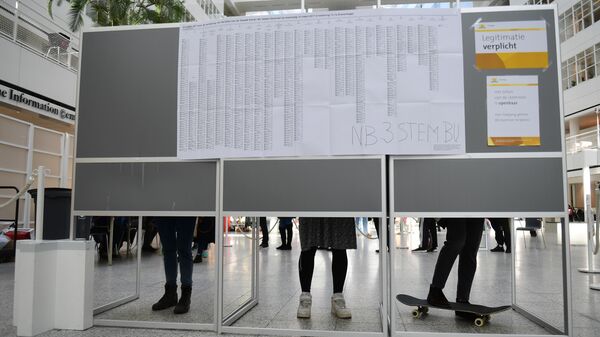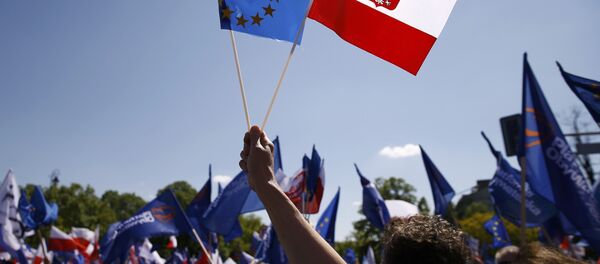The concept of "populism" has become a popular trope with many in the media and politics in the US and Europe who want a convenient description for the surprising results of recent elections there.
For example, the recent election of Donald Trump instead of Hillary Clinton sent shockwaves across the political and media establishment, most of whom had backed Hillary Clinton.
In the UK, the result of the Brexit referendum came as a surprise to most parliamentarians, who voted to hold a referendum on leaving the EU in the belief that the public would reject the idea.
Rather than dismissing these trends as "populism" and "nationalism," politicians and political institutions need to make some radical reforms to political representation, Van Reybrouck argues.
In his book called "Against Elections: The Case for Democracy," the archaeologist proposes using the ancient method of sortition to better represent the people.
"Referendums and elections are both arcane instruments of public deliberation," Van Reybrouck wrote in The Correspondent last November.
"People care deeply about their communities and want to be heard. But a much better way to let the people speak than through elections or referendums is to return to the central principle of Athenian democracy: Drafting by lot, or sortition as it is presently called."
"In ancient Athens, the vast majority of public functions were assigned by lot. Renaissance states such as Venice and Florence worked on the same principle and experienced centuries of political stability. With sortition, you do not ask everyone to vote on an issue few people really understand. Instead, you draft a random sample of the population and make sure they come to the grips with the subject matter in order to take a sensible decision. A cross-section of society that is informed can act more coherently than an entire society that is uninformed," he wrote.
According to Van Reybrouck, a government determined by a demarchy of randomly selected decision makers would be less corrupt and involve citizens in the democratic process, thus increasing trust in political structures.
However, the results of recent elections have shown that political outsiders and new parties are increasingly attractive to the electorate.
For example, in the US, Donald Trump's popularity was matched by Bernie Sanders, the outside candidate for the Democratic presidential nomination. According to Real Clear Politics, polls last year gave Sanders more than twice Clinton's lead in a potential run-off with Trump.
In France, National Front candidate Marine Le Pen, labeled a "populist" earlier this month by French President Francois Hollande, is predicted to win the most votes in the first round of presidential elections next month.
According to poll conducted on Thursday by Ifop—Fiducial for Paris Match, CNews and Sud Radio, Le Pen is supported by 26.5 percent of voters.
With 25.5 percent, Emmanuel Macron is in second place. Macron, who has set up his own party called "En Marche! (Forward)," is seen as an outsider despite having served as Minster of the Economy in the Socialist government of Manuel Valls.
"As an EU member with a high level of trade openness and capital mobility, France is exposed and constrained by what its main trade partners and other economic actors do. Unilateral decisions and radical reforms end up being very costly and are, eventually, abandoned. And voters end up greatly disappointed," wrote Emiliano Grossman and Nicolas Sauger, authors of Pourquoi détestons-nous nos politiques? (Why do we hate our politicians?).
In the Dutch general election on Wednesday, the governing center-right VVD party led by Mark Rutte won the most parliamentary seats. However, the VVD also lost eight seats in comparison with elections five years ago. The Labour Party, the VVD's coalition partners, suffered a crushing defeat and reduced its share of parliamentary representation from 38 seats to just nine.
Political outsiders increased their share of the vote. The anti-immigrant Party for Freedom led by Geert Wilders gained five seats to win 20 in total and become the second-largest party in the House of Representatives.
The Green-Left party and Democrats 66, a liberal-democratic party which campaigns for direct democracy, were also election winners. The former increased its representation from four to 14 seats, and the latter from 12 to 19 seats in the House of Representatives.






